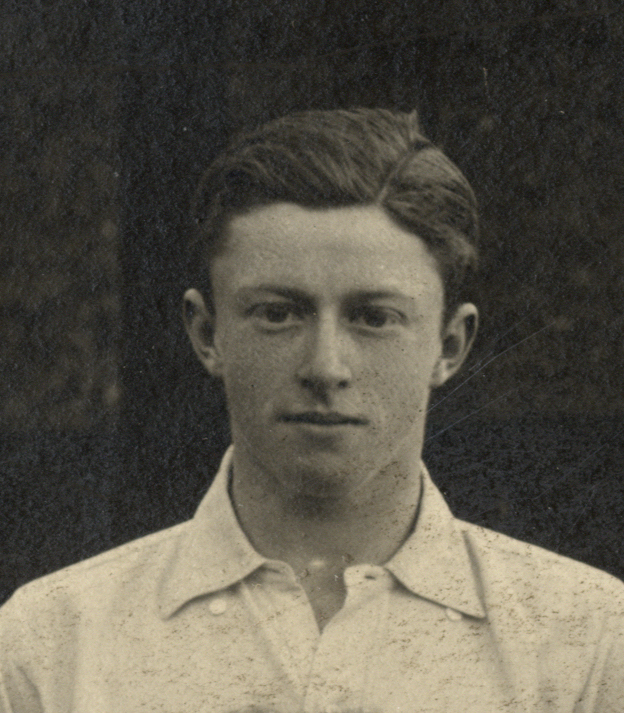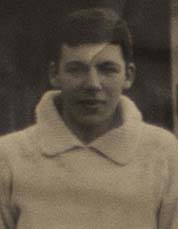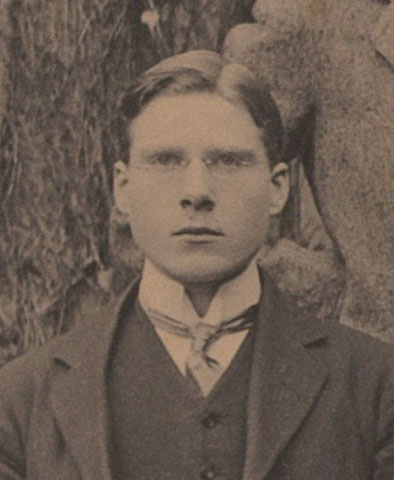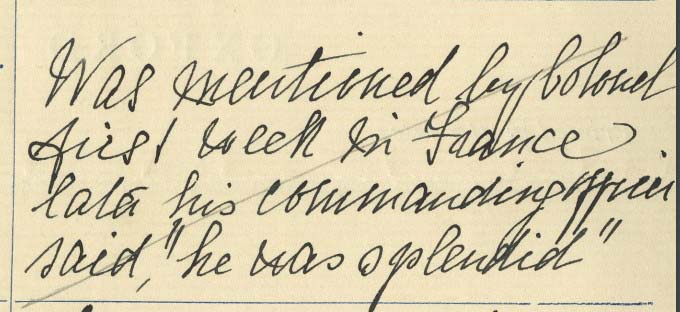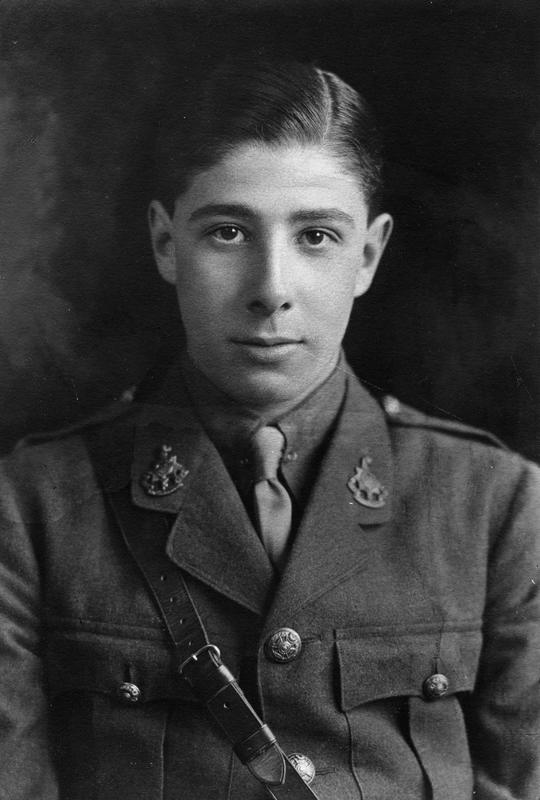Edmund Davison
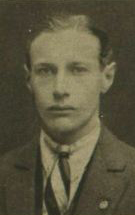 Edmund Davison’s first years at the school were spent in the shadow of his elder brother, Ralph, who was two years above him in Rigaud’s. Once his brother had left, Edmund came into his own. He excelled at sport, playing for the House team, initially described as a ‘useful and speedy half though not a polished player’. He rose to the 2nd XI and finally appeared in the 1st XI in his final year at the school, receiving full pinks. He won the 300 yard race at Athletic Sports, with a time of 36 2/5 seconds, leading most of the way and winning ‘fairly easily in average time’.
Edmund Davison’s first years at the school were spent in the shadow of his elder brother, Ralph, who was two years above him in Rigaud’s. Once his brother had left, Edmund came into his own. He excelled at sport, playing for the House team, initially described as a ‘useful and speedy half though not a polished player’. He rose to the 2nd XI and finally appeared in the 1st XI in his final year at the school, receiving full pinks. He won the 300 yard race at Athletic Sports, with a time of 36 2/5 seconds, leading most of the way and winning ‘fairly easily in average time’.
Edmund was particularly valued in the house as a recruiting sergeant for the Officer Training Corps, getting 14 boys to join in his first term alone. He rose through the ranks here and ended his school career as the head of the school’s force, the Company Sergeant Major. He was also appointed a monitor, Head of House and elected Head Town Boy. His last at school was tinged with sadness though, as his elder brother was killed in action on 9th May 1915.
Edmund joined the army immediately upon leaving the school and took a commission as a 2nd Lieutenant in the Royal Sussex Regiment. He was sent to the front with the 12th Battalion in June 1916 and invalided home wounded in October 1916. Upon his recovery, he returned to the front in July 1917. His death was reported in The Elizabethan:
Mr. DAVISON, the youngest son of Mrs. Davison, of Gordon Square, was at the School from April 1910 to Christmas 1915. His loss is much regretted by the present generation, who remember his zeal and efficiency as an Officer of the Corps. He was wounded soon after going to the Front, but recovered and returned. We have before had to record the death of his elder brother, and we feel deeply for his widowed mother in her heavy loss.
